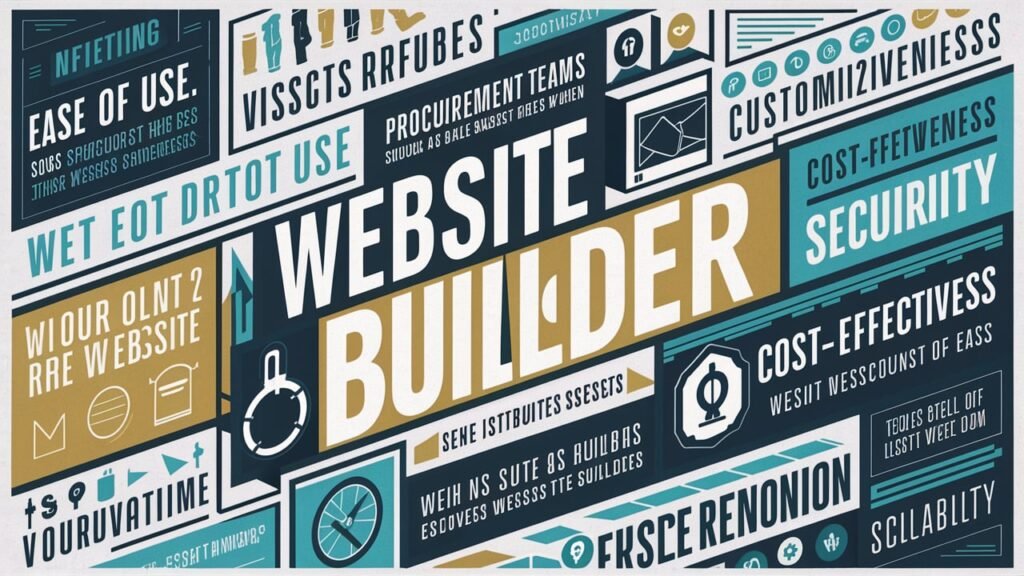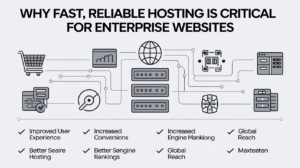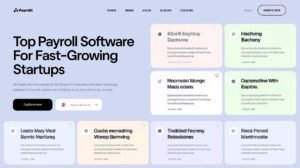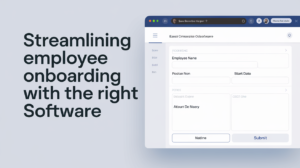In today’s digital age, selecting the right website builder is critical for procurement teams looking to maximize efficiency and boost productivity. With a multitude of options available, procurement professionals must weigh various factors to ensure their choice aligns with organizational goals, technical requirements, and budgetary constraints.
This comprehensive guide explores the essential features procurement teams should look for when choosing a top-tier website builder to streamline operations and foster long-term growth.
Understanding the Needs of Your Organization
1. Identifying Core Requirements
The first step in choosing a website builder is understanding your organization’s specific needs and priorities. Start by identifying the core functionalities required, such as:
- Ease of use
- Customization options
- Integration capabilities
- Security features
2. Evaluating Current Infrastructure
Assessing your current digital infrastructure provides insights into compatibility and integration needs. Ensure that the website builder can seamlessly integrate with your existing systems, including ERP solutions, CRM software, and other procurement tools.
Key Features Procurement Teams Should Prioritize
1. User-Friendliness
For a smooth experience, a user-friendly interface is paramount. Look for features like:
- Drag-and-drop functionality
- Intuitive navigation
- Comprehensive support resources
This ease of use reduces the learning curve, allowing your team to quickly adapt and focus on other high-priority tasks.
2. Customization Capabilities
Customization is crucial for tailoring your website to match your brand identity and business needs. A website builder should offer:
- Robust design tools
- Customizable templates
- Flexibility to add advanced features
3. Security Features
In a world of rising cyber threats, security is non-negotiable. Look for website builders that provide:
- SSL certificates
- Regular software updates
- Compliance with data protection regulations (such as GDPR)
4. Scalability
As your business grows, your website should grow with it. Ensure that the website builder can handle:
- Increased traffic
- Content expansion
- Additional functionalities
All of this without compromising performance.
Integration with Existing Tools
1. API Capabilities
Choose a website builder that offers strong API integration, allowing you to seamlessly connect it to your existing procurement tools like supply chain management systems, financial software, and e-commerce platforms.
2. Third-Party App Integration
Integration with third-party applications enhances your website’s functionality. Ensure compatibility with tools like:
- Google Analytics
- Payment gateways
- Marketing automation software
- Social media platforms
Evaluating Cost and Value
1. Total Cost of Ownership
It’s essential to go beyond initial costs. Evaluate the total cost of ownership, which includes:
- Subscription fees
- Transaction costs
- Hidden expenses
Taking a value-driven approach ensures that your chosen website builder provides the best ROI.
2. Free Trials and Demos
Opt for website builders that offer free trials or demos. This allows procurement teams to:
- Test features
- Assess user experience
- Make informed decisions before committing to a long-term contract
Support and Resources
1. Customer Support
Reliable customer support is key. Ensure the website builder provides 24/7 assistance through multiple channels, such as:
- Live chat
- Phone
2. Documentation and Tutorials
Look for builders that offer comprehensive documentation, tutorials, and community forums to help your team resolve issues independently and efficiently.
SEO and Performance
1. SEO Tools
Search engine optimization (SEO) plays a vital role in driving traffic to your website. Ensure the website builder is equipped with built-in SEO tools, such as:
- Meta tags
- Keyword targeting
- XML sitemaps
2. Performance Optimization
Site performance, including load speed and mobile responsiveness, significantly impacts user experience and search engine rankings. The website builder should provide tools for performance optimization to ensure seamless user experiences.
Case Studies and Reviews
1. Industry-Specific Case Studies
Reviewing industry-specific case studies helps you understand how the website builder performs under similar conditions. These real-world examples offer valuable insights into the platform’s capabilities.
2. Customer Reviews
Check customer reviews on reputable platforms. Feedback from other procurement professionals can shed light on the pros and cons of each website builder.
Conclusion
Procurement teams play a pivotal role in selecting a website builder that not only meets organizational needs but also sets the stage for future growth. By prioritizing user-friendliness, customization, security, scalability, integration capabilities, and cost-effectiveness, procurement teams can make informed decisions that align with broader business goals.
Armed with the right information, your team is now well-equipped to choose the best website builder to enhance operational efficiency and drive long-term success.









